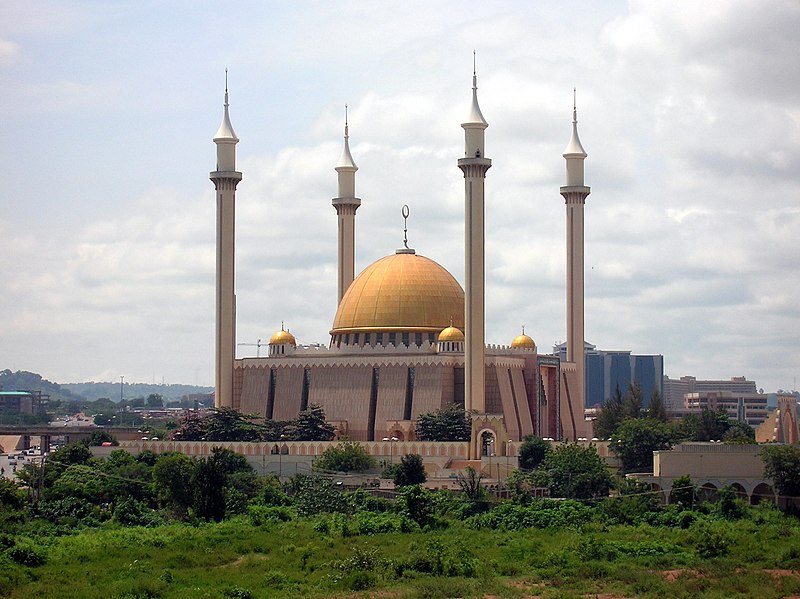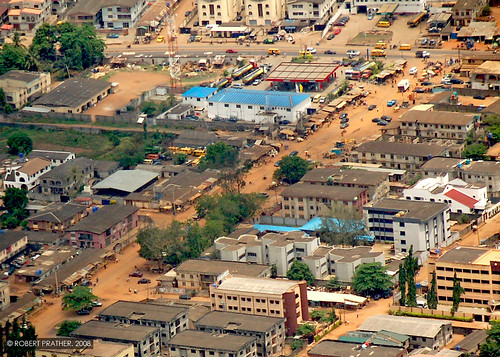Difference between revisions of "Adopting from Nigeria"
(→After Adoption) |
|||
| Line 21: | Line 21: | ||
{{#eimage:https://farm6.staticflickr.com/5048/5373803995_8b71db4c16.jpg|410x579px|thumb|'''A baby receiving the polio vaccine through the Gates Foundation.'''<BR/>Source: flickr.com.}} | {{#eimage:https://farm6.staticflickr.com/5048/5373803995_8b71db4c16.jpg|410x579px|thumb|'''A baby receiving the polio vaccine through the Gates Foundation.'''<BR/>Source: flickr.com.}} | ||
| + | |||
| + | |||
| + | =Nigeria Adoption Alert= | ||
| + | |||
| + | <span style="color:red">'''Notice: Adoption Notice for Nigeria (April 26, 2013)''' | ||
| + | |||
| + | Adoption and guardianship decrees from Nigerian states that lack adoption laws, and adoptions by persons of non-Nigerian heritage, may not be allowable under Nigerian law or acceptable for purposes of U.S. immigration. | ||
| + | |||
| + | |||
| + | The Department of State is aware of instances in which U.S. citizens have sought or are seeking to pursue adoptions in Nigerian states that lack adoption laws. These states include all northern states, with the exception of Plateau State and Nasarawa State. It is unclear whether any adoption or guardianship orders originating in these states can legally occur. Therefore, such orders presented to the U.S. Consulate General in Lagos, as part of an [[Adoption Petition|adoption petition]] filing or visa application, will likely require further investigation. More information on adoption investigations conducted by the U.S. Consulate General, including approximate wait times, can be found here. | ||
| + | |||
| + | |||
| + | Adoption laws in Nigeria are complex. Even in states in which adoption laws exist, specific requirements can differ from state to state. All Nigerian states that have adoption laws require the prospective [[Adoptive Parent|adoptive parent]](s) to be a Nigerian citizen. As a result, adoptions by non-Nigerians may not be acceptable for purposes of U.S. immigration. | ||
| + | |||
| + | |||
| + | The Department advises U.S. citizens interested in pursuing an adoption from Nigeria to research U.S. immigration laws and the relevant Nigerian federal and state laws and procedures by consulting with a reputable, licensed agency or experienced facilitator in the United States, and with the appropriate state social welfare office (usually named the State Ministry of Women’s or Family Affairs) in Nigeria. | ||
| + | |||
| + | |||
| + | |||
| + | <span style="color:red">'''Notice: Adoption Notice for Nigeria (January 29, 2013)''' | ||
| + | |||
| + | Adoption and guardianship decrees from Nigerian states that lack adoption laws, and adoptions by persons of non-Nigerian heritage, may not be allowable under Nigerian law or acceptable for purposes of U.S. immigration. | ||
| + | |||
| + | |||
| + | The Department of State is aware of instances in which U.S. citizens have sought or are seeking to pursue adoptions in Nigerian states that lack adoption laws. These states include all northern states, with the exception of Plateau State and Nasarawa State. It is unclear whether any adoption or guardianship orders originating in these states can legally occur. Therefore, such orders presented to the U.S. Consulate General in Lagos, as part of an [[Adoption Petition|adoption petition]] filing or visa application, will likely require further investigation. More information on adoption investigations conducted by the U.S. Consulate General, including approximate wait times, can be found here. | ||
| + | |||
| + | |||
| + | Adoption laws in Nigeria are complex. Even in states in which adoption laws exist, specific requirements can differ from state to state. All Nigerian states that have adoption laws, with the sole exception of Lagos State, require the prospective [[Adoptive Parent|adoptive parent]](s) to be of Nigerian heritage. As a result, non-Nigerians are not allowed to [[adopt]] in most states. | ||
| + | |||
| + | |||
| + | The Department advises U.S. citizens interested in pursuing an adoption from Nigeria to research U.S. immigration laws and the relevant Nigerian federal and state laws and procedures by consulting with a reputable, licensed agency or experienced facilitator in the United States, and with the appropriate state social welfare office (usually named the State Ministry of Women’s or Family Affairs) in Nigeria. | ||
Revision as of 23:54, 7 April 2014
Contents
Nigeria Adoption Alert
Notice: Adoption Notice for Nigeria (April 26, 2013)
Adoption and guardianship decrees from Nigerian states that lack adoption laws, and adoptions by persons of non-Nigerian heritage, may not be allowable under Nigerian law or acceptable for purposes of U.S. immigration.
The Department of State is aware of instances in which U.S. citizens have sought or are seeking to pursue adoptions in Nigerian states that lack adoption laws. These states include all northern states, with the exception of Plateau State and Nasarawa State. It is unclear whether any adoption or guardianship orders originating in these states can legally occur. Therefore, such orders presented to the U.S. Consulate General in Lagos, as part of an adoption petition filing or visa application, will likely require further investigation. More information on adoption investigations conducted by the U.S. Consulate General, including approximate wait times, can be found here.
Adoption laws in Nigeria are complex. Even in states in which adoption laws exist, specific requirements can differ from state to state. All Nigerian states that have adoption laws require the prospective adoptive parent(s) to be a Nigerian citizen. As a result, adoptions by non-Nigerians may not be acceptable for purposes of U.S. immigration.
The Department advises U.S. citizens interested in pursuing an adoption from Nigeria to research U.S. immigration laws and the relevant Nigerian federal and state laws and procedures by consulting with a reputable, licensed agency or experienced facilitator in the United States, and with the appropriate state social welfare office (usually named the State Ministry of Women’s or Family Affairs) in Nigeria.
Notice: Adoption Notice for Nigeria (January 29, 2013)
Adoption and guardianship decrees from Nigerian states that lack adoption laws, and adoptions by persons of non-Nigerian heritage, may not be allowable under Nigerian law or acceptable for purposes of U.S. immigration.
The Department of State is aware of instances in which U.S. citizens have sought or are seeking to pursue adoptions in Nigerian states that lack adoption laws. These states include all northern states, with the exception of Plateau State and Nasarawa State. It is unclear whether any adoption or guardianship orders originating in these states can legally occur. Therefore, such orders presented to the U.S. Consulate General in Lagos, as part of an adoption petition filing or visa application, will likely require further investigation. More information on adoption investigations conducted by the U.S. Consulate General, including approximate wait times, can be found here.
Adoption laws in Nigeria are complex. Even in states in which adoption laws exist, specific requirements can differ from state to state. All Nigerian states that have adoption laws, with the sole exception of Lagos State, require the prospective adoptive parent(s) to be of Nigerian heritage. As a result, non-Nigerians are not allowed to adopt in most states.
The Department advises U.S. citizens interested in pursuing an adoption from Nigeria to research U.S. immigration laws and the relevant Nigerian federal and state laws and procedures by consulting with a reputable, licensed agency or experienced facilitator in the United States, and with the appropriate state social welfare office (usually named the State Ministry of Women’s or Family Affairs) in Nigeria.
Hague Convention Information
Who Can Adopt
Residency
Age of Adopting Parents
Marriage
Income
Other
Who Can Be Adopted
How to Adopt
Adoption Authority
The Process
Traveling Abroad
Applying for Your U.S. Passport
A valid U.S. passport is required to enter and leave Nigeria. Only the U.S. Department of State has the authority to grant, issue, or verify U.S. passports. Getting or renewing a passport is easy. The Passport Application Wizard will help you determine which passport form you need, help you to complete the form online, estimate your payment, and generate the form for you to print-all in one place.
Obtaining Your Visa
In addition to a U.S. passport, you also need to obtain a visa. A visa is an official document issued by a foreign country that formally allows you to visit. Where required, visas are attached to your passport and allow you to enter a foreign nation. To find information about obtaining a visa for Nigeria, see the Department of State's Country Specific Information.
Staying Safe on Your Trip
Before you travel, it's always a good practice to investigate the local conditions, laws, political landscape, and culture of the country. The State Department is a good place to start. The Department of State provides Country Specific Information for every country of the world about various issues, including the health conditions, crime, unusual currency or entry requirements, and any areas of instability.
Staying in Touch on Your Trip
When traveling during the adoption process, we encourage you to register your trip with the Department of State. Travel registration makes it possible to contact you if necessary. Whether there's a family emergency in the United States, or a crisis in Nigeria, registration assists the U.S. Embassy or Consulate in reaching you. Registration is free and can be done online.
After Adoption
What resources are available to assist families after the adoption?
Many adoptive parents find it important to find support after the adoption. Take advantage of all the resources available to your family -- whether it's another adoptive family, a support group, an advocacy organization, or your religious or community services.
Here are some good places to start your support group search:
Child Welfare Information Gateway
North American Council on Adoptable Children
Adoption Services Support Group for Adopting Persons
SOURCE
Intercountry Adoption, Bureau of Consular Affairs. U.S. Department of State Country Information










